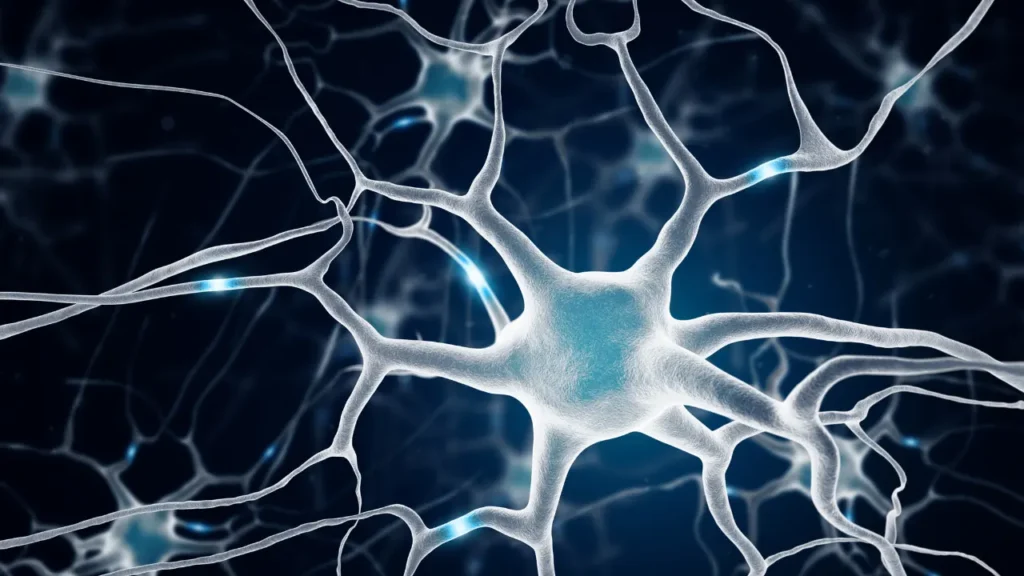Yohimbe, a natural herbal supplement made from the bark of a tree endemic to Central and West Africa called Pausinystalia yohimbe, has drawn much interest due to its conceivable health advantages. Yohimbe, a traditionally used stimulant and aphrodisiac, has been the focus of a large number of studies in recent years to better understand its chemistry, physiological effects, and recommended use. The goal of this article is to present a thorough and academic analysis of Yohimbe, focusing on its chemical makeup, health advantages, recommended dosage, potential adverse effects, drug interactions, and safe use.
You May Also Like:
What Are the Best Mushrooms for Brain Health? Here Are the Facts.
5 Things to Consider When Choosing the Best Mushrooms for Mental Health
Yohimbe: Benefits, Dosage, Side Effects, Drug Interactions, And Other Important Information is an original (NootropicsPlanet) article.
Nature of Yohimbe
A native of the deep, tropical rainforests of Central and West Africa, the Yohimbe is an evergreen tree. The tree, which has a straight, cylindrical trunk and a dense, umbrella-shaped crown, can reach a height of up to 30 meters. The main ingredient in the supplement is extracted from the tough, grayish-brown bark of the Yohimbe tree.
Traditionally, the bark has been removed from trees by sawing a strip or many strips from the trunk, protecting the tree from irreparable harm. After drying, it is either processed into an extract or finely powdered for use as a dietary supplement. Yohimbine is the main and most well-known substance found in the bark of the Yohimbe tree, which is abundant in physiologically active alkaloids.
Health Benefits of Yohimbe
- Erectile Dysfunction: Yohimbe’s ability to treat erectile dysfunction (ED) is one of the herb’s most well-known advantages. Yohimbine has been proven to improve erectile function by increasing blood flow to the penile tissue, presumably through antagonizing the 2-adrenergic receptor and increasing the release of norepinephrine as a result.
- Weight Loss: Yohimbe may help people lose weight by encouraging lipolysis (the breakdown of fat) and raising their energy expenditure. Increased norepinephrine levels, which can promote the breakdown of fat cells and inhibit hunger, may be the mechanism causing this effect.
- Antidepressant Effects: According to some research, yohimbine may have antidepressant effects since it acts as a mild MAO inhibitor and can raise levels of neurotransmitters like serotonin, norepinephrine, and dopamine. However, additional study is required to validate these results.

Chemistry of Yohimbe
Yohimbine, an indole alkaloid that functions as a 2-adrenergic antagonist, is the main active substance in Yohimbe bark. An indole ring and a methylated oxime moiety make up the complicated structure of the alkaloid, a naturally occurring chemical. Yohimbine is a chiral molecule, which means it has stereoisomers. The R-enantiomer is the main biologically active form. Yohimbe bark also contains lower levels of other alkaloids, such as rauwolscine, corynanthine, and ajmalicine, in addition to yohimbine.
Physiological Mechanism of Action
Yohimbine, the main chemical in Yohimbe, is an antagonist of 2-adrenergic receptors, which are inhibitory G protein-coupled receptors located in the peripheral tissues and the central nervous system (CNS). Norepinephrine, a neurotransmitter in charge of controlling blood pressure, heart rate, and the fight-or-flight response, is released because of this antagonistic relationship. Yohimbine boosts the body’s alertness and vitality by raising norepinephrine levels, encouraging vasodilation, and increasing blood flow.
Yohimbine also has a minor inhibitory effect on the monoamine oxidase (MAO) enzyme in the brain, which breaks down neurotransmitters like dopamine, norepinephrine, and serotonin. Yohimbine is said to have stimulant, aphrodisiac, and antidepressant properties. This inhibition can lead to higher amounts of certain neurotransmitters in the brain, which may be a factor in these effects.


Optimal Dosage of Yohimbe
The ideal Yohimbe dosage varies according to the person’s weight, age, and intended effect, among other things. Yohimbine is often used twice or three times a day at a dosage of 5 to 10 milligrams (mg) for the treatment of ED. Although some studies have utilized greater doses with successful outcomes, a daily dosage of 0.2 mg per kilogram of body weight is frequently advised for weight loss.
Yohimbine levels in Yohimbe pills can vary greatly, with some containing as little as 1% and others carrying up to 10% or more. To guarantee precise dosing, choosing a reliable and standardized yohimbe extract is essential. A healthcare expert should also be consulted before beginning any Yohimbe supplements, particularly if a person has pre-existing medical issues or is taking medication.
Side Effects of Yohimbe
Yohimbe may have health advantages, but there are also hazards. The following are some frequent adverse reactions to Yohimbe supplementation:
- The stimulatory actions of yohimbine on the release of norepinephrine can result in tachycardia (increased heart rate) and hypertension (high blood pressure). People who already have heart disease or high blood pressure should use Yohimbe with caution.
- Anxiety and jitteriness: Yohimbine’s stimulatory actions on the central nervous system may cause a rise in some people’s anxiety, jitteriness, and irritability.
- Digestive distress: Yohimbe users may have gastrointestinal symptoms such as nausea, vomiting, and diarrhea.
- Insomnia: Yohimbe’s stimulating properties can make it difficult for some people to sleep or stay asleep for long periods.


Potential Substance Interactions with Yohimbe
Various substances, including prescription drugs and other dietary supplements, can interact with Yohimbe. Here are a few notable interactions:
- Antidepressants: Due to Yohimbe’s ineffective MAO inhibitory action, it may interact dangerously with some antidepressants, especially monoamine oxidase inhibitors (MAOIs) and selective serotonin reuptake inhibitors (SSRIs).
- Blood pressure drugs: Yohimbe’s effects on blood pressure can impair the effectiveness of blood pressure drugs, such as beta-blockers and calcium channel blockers.
- Stimulants: Mixing Yohimbe with other stimulants like coffee or ephedrine can worsen the adverse effects of both drugs, raising the risk of heart problems and symptoms related to anxiety.
Best Responsible Uses of Yohimbe
Yohimbe users should follow the following recommendations to reduce dangers and maximize potential benefits:
- Before beginning a Yohimbe supplements regimen, speak with a healthcare provider, especially if you are on any drugs or have any pre-existing medical conditions.
- To ensure precise dosing, use a reliable and standardized Yohimbe extract.
- Begin with a low dose and increase it gradually as necessary, attentively observing for side effects and modifying the dosage.
- Steer clear of mixing Yohimbe with stimulants or other substances that are known to interact with it.
Yohimbe:
Conclusion
Yohimbe has been traditionally used in African folk medicine as an aphrodisiac, to enhance sexual performance, and to treat conditions such as erectile dysfunction, low libido, and obesity. Some studies suggest that yohimbine, the active compound in Yohimbe, may have potential benefits for sexual health, weight loss, and athletic performance. However, research results are inconsistent, and more robust clinical trials are needed to confirm these effects and determine appropriate dosages.
Yohimbe and yohimbine can cause significant side effects, including increased heart rate, elevated blood pressure, anxiety, dizziness, and gastrointestinal upset. In high doses, they can be toxic and potentially life-threatening. Individuals with cardiovascular conditions, psychiatric disorders, or other health concerns should avoid Yohimbe or use it under medical supervision. It’s essential to consult with a healthcare professional before using Yohimbe, especially if you have underlying health conditions or are taking medications.


References:
- Yohimbine for erectile dysfunction: a systematic review and meta-analysis of randomized clinical trials. Retrieved from: https://jamanetwork.com/journals/jama/article-abstract/396766
- Yohimbine: the effects on body composition and exercise performance in soccer players. Retrieved from: https://www.ncbi.nlm.nih.gov/pmc/articles/PMC5422695/
- Yohimbine use for physical enhancement and its potential toxicity. Retrieved from: https://journals.lww.com/journaladdictionmedicine/Abstract/2012/12000/Yohimbine_Use_for_Physical_Enhancement_and_Its.8.aspx
Important Note: The information contained in this article is for general informational purposes only, and should not be construed as health or medical advice, nor is it intended to diagnose, prevent, treat, or cure any disease or health condition. Before embarking on any diet, fitness regimen, or program of nutritional supplementation, it is advisable to consult your healthcare professional in order to determine its safety and probable efficacy in terms of your individual state of health.
Regarding Nutritional Supplements Or Other Non-Prescription Health Products: If any nutritional supplements or other non-prescription health products are mentioned in the foregoing article, any claims or statements made about them have not been evaluated by the U.S. Food and Drug Administration, and such nutritional supplements or other health products are not intended to diagnose, treat, cure, or prevent any disease.
